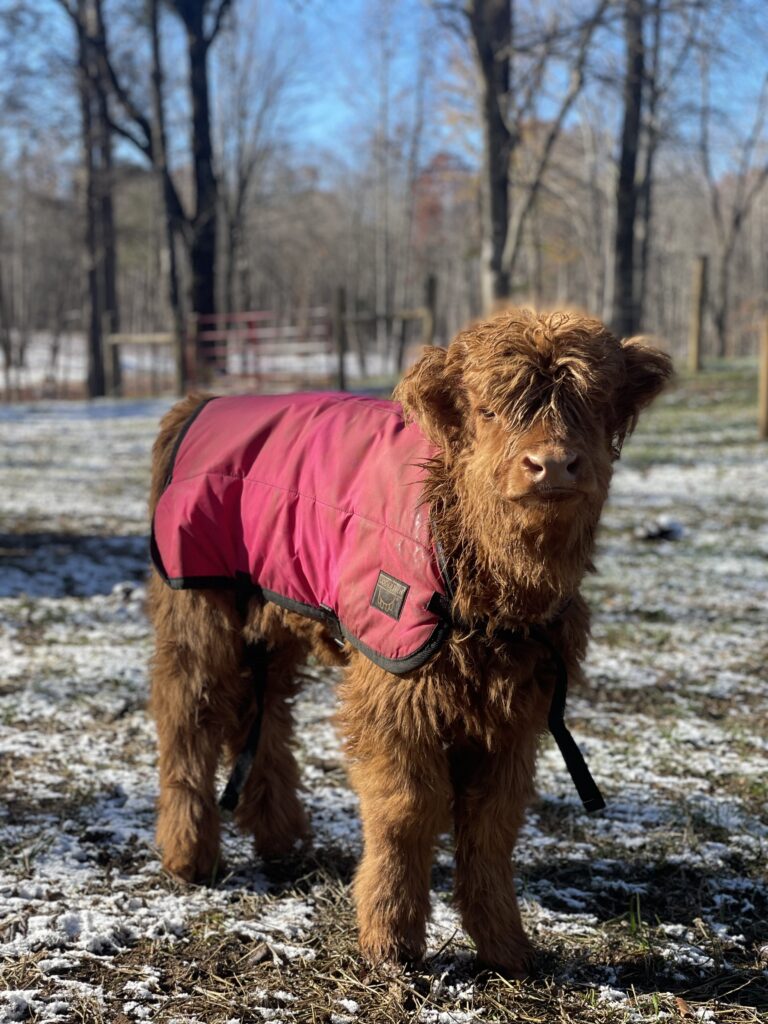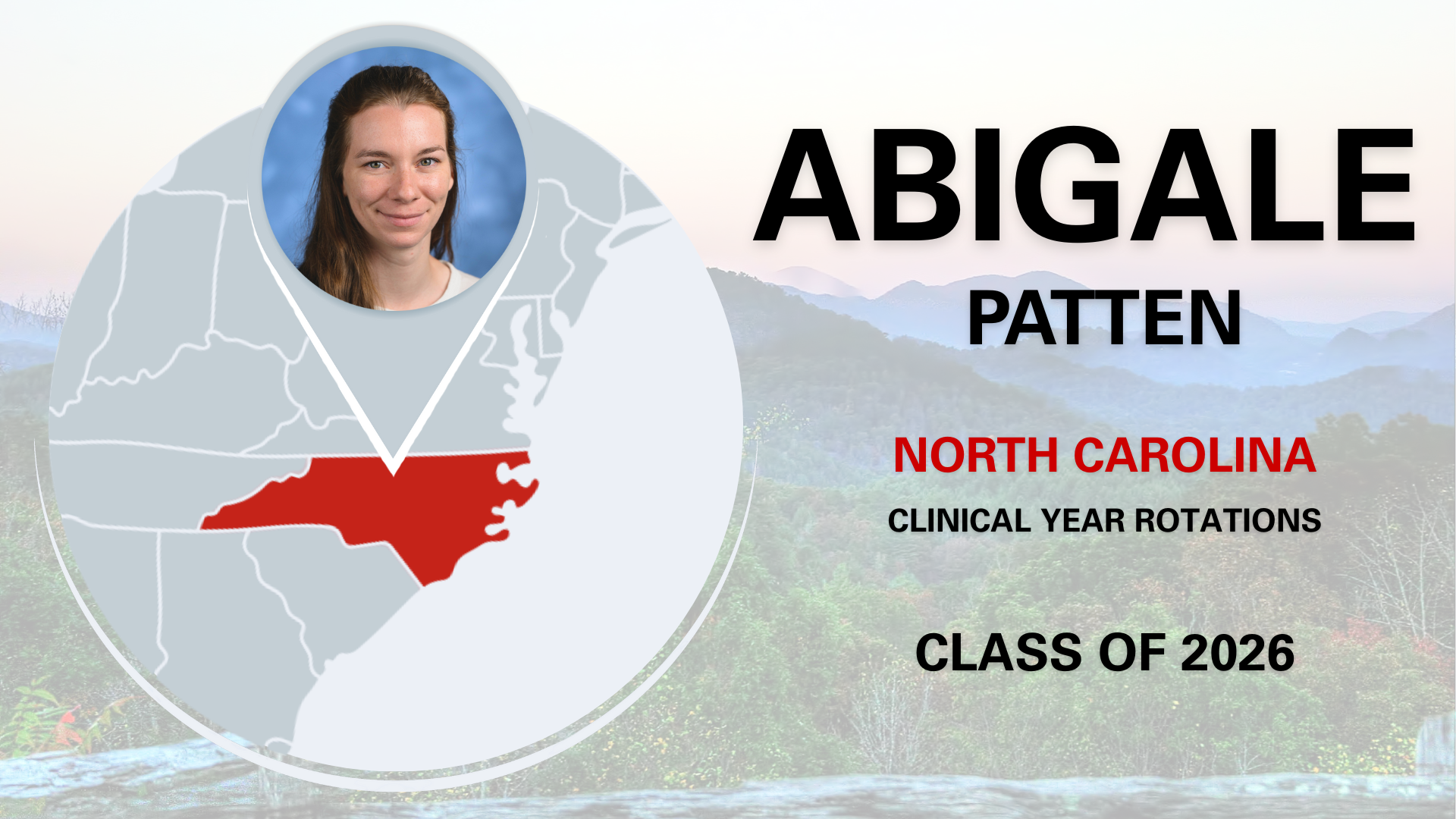‘She Was So Sick When She Got Here’
Critically ill from a colostrum complication, newborn Highland cow Starlight needed round-the-clock care somewhere she could also bond with her mother. The NC State Veterinary Hospital met those needs.
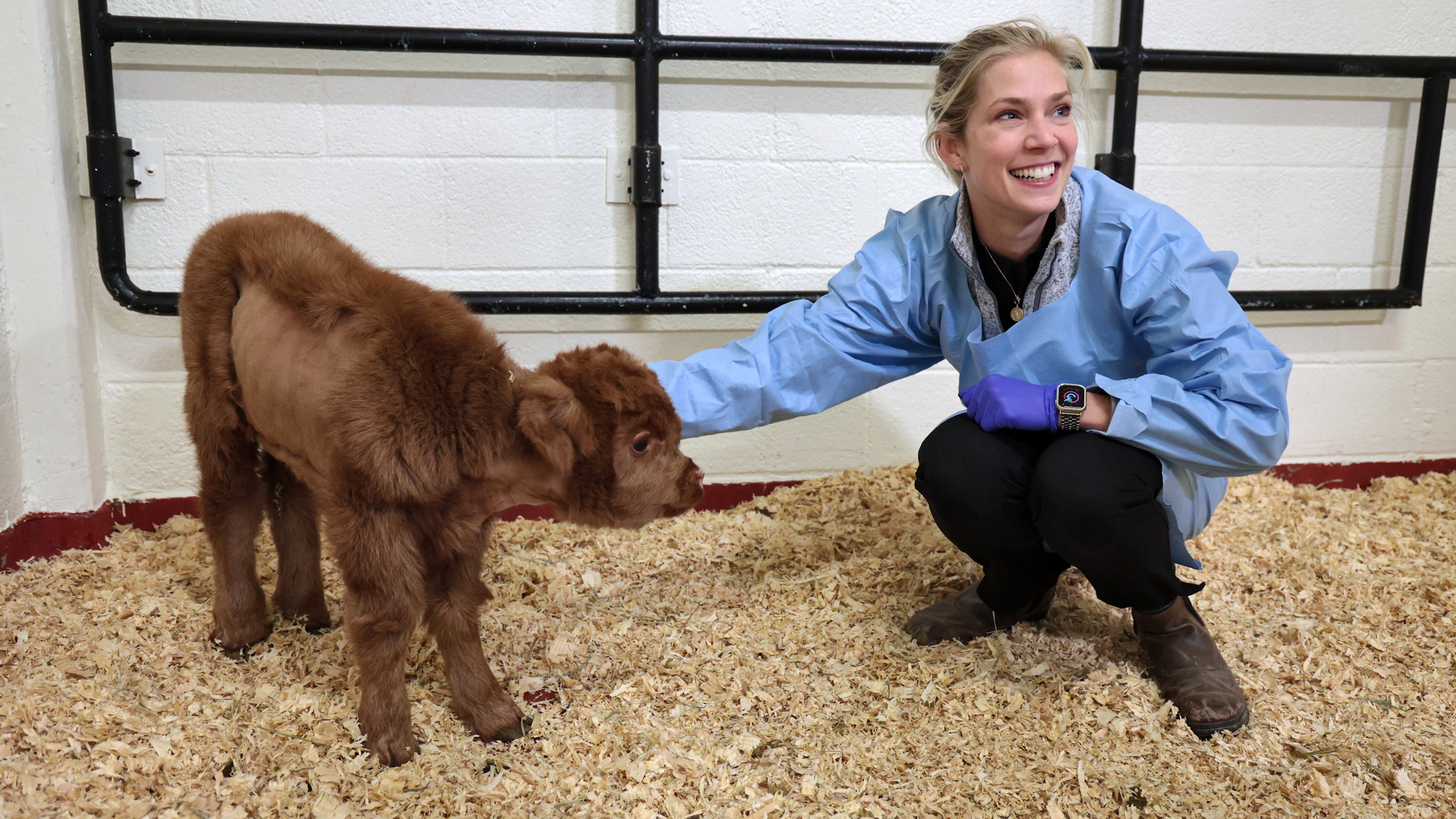
The Dawkins family has the picture-perfect farm — literally.
Their estate, The Farm at Berry Lane in Pleasant Garden, North Carolina, graced the front cover of Better Homes & Gardens magazine’s annual Farmhouse Christmas issue in 2024. Mugging for the camera through a festive wreath and bushy auburn bangs, Highland cow Countess Carolina showed that the real stars of the property are members of the Dawkins’ 20-head herd.
The hirsute Highlands serve as companion and show animals for the family, who started the farm in 2019 and support it by breeding the pedigreed cattle.
So when a routine calving in October took a turn that endangered the life of the newborn calf, it was harrowing for the family. Starlight, born to first-time mother Luna, failed to nurse within her first 24 hours of life and was deprived of essential immune-boosting colostrum. With her weakened immune system, Starlight rapidly developed pneumonia and sepsis.
The Dawkinses’ quick-thinking veterinarian referred one-day-old Starlight to the NC State Veterinary Hospital, where ruminant experts gave her life-saving treatment that included a transfusion of immune antibodies that helped her fight the infection. NC State also made space for Luna throughout Starlight’s hospital stay, ensuring mother and baby could bond and nurse naturally.
“We just had the best experience,” says Kristi Dawkins. “They were really in tune to Starlight and Luna’s needs and also our wishes as well. Scottish Highlands are just so unique in their nature — it’s really critical for the calves to be handled by and have a good experience being with humans, and it just seemed like a very good experience all the way around, for everybody.”
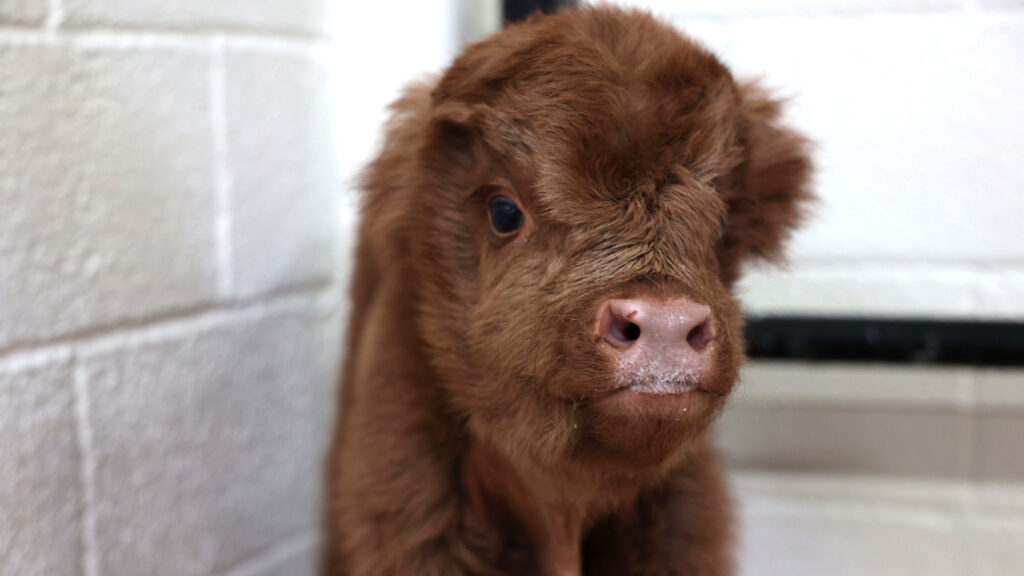
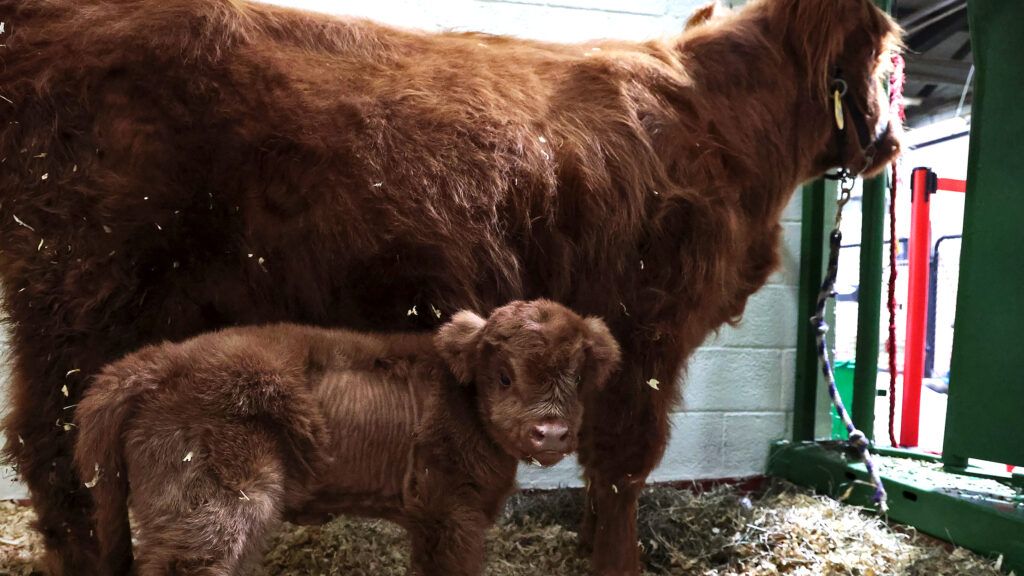
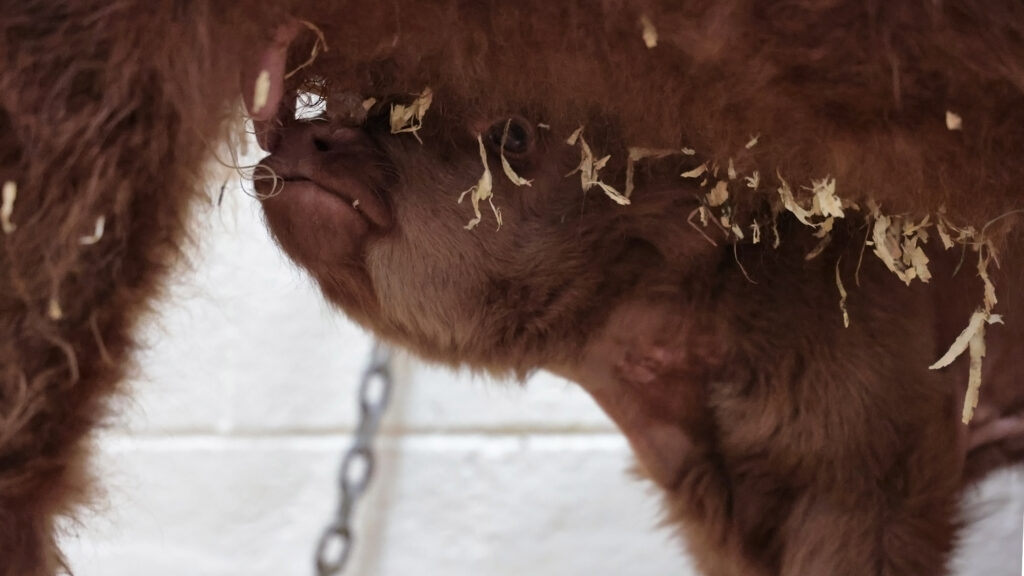
Starlight was born overnight Oct. 8 without the family’s knowledge or intervention. By the time JulieAnne Dawkins, Kristi’s daughter, discovered the birth that morning, everything seemed normal with dam and calf except that Starlight kept struggling to stand up.
“Pretty early on, my motherly instinct said, ‘There’s something that’s not quite right,’” says Kristi Dawkins. “She was just very settled, kind of lethargic.”
When it became clear that Starlight hadn’t gotten up after several hours, the family made her a bottle of calf milk replacer that she needed assistance to drink. The next morning, they discovered the weak calf in the same spot, rejecting additional bottles. They called in their mobile veterinarian, who tube-fed Starlight colostrum replacer and referred the baby to NC State for specialized care.
Colostrum, the first milk produced by a postpartum mother, contains essential antibodies and growth factors that fortify a newborn calf’s immune system and help it develop normally. Failed transfer of passive immunity, or FTPI, is a serious condition that occurs when a calf doesn’t receive enough immunoglobulin G via colostrum from its mother within a 24-hour critical period, putting the newborn at high risk for infections.
“FTPI leaves the animal immunocompromised for quite some time and in general can set them back for life or leave them more prone to disease,” says Dr. Ailbhe King, assistant clinical professor of ruminant medicine. “You cannot correct this problem — once an FTPI, always an FTPI. However, if it does happen, owners should have their animal assessed by a veterinarian who can make recommendations based on the clinical status of that individual animal.”
By the time Starlight arrived at NC State on Oct. 9, diagnostic tests showed she was septic and had pneumonia. Starlight’s ruminant care team — including King, assistant professor Dr. Lisa Gamsjaeger, residents Dr. Siena Mitman and Dr. Michael Center and fourth-year students Emma Flynn and Giancarlo Vacca — gave her a plasma transfusion of bovine immunoglobulin antibodies and started her on a regimen of antimicrobials, anti-inflammatories, IV fluids and intranasal oxygen.
“She was so sick when she got here,” says Mitman, a second-year resident. “Honestly, sometimes with calves that are that ill, you give them all the treatments that they need and their prognosis can still be guarded. But Starlight was a really fun case, because she got here in a timely manner in which we could do all those things for her, and she improved.”
Within a couple days, Starlight was nursing from Luna but still very sick. Ultrasonographic examinations showed significant pneumonia persisted in her lungs, so veterinarians gave Starlight antibiotics by both injection and nebulization, in addition to a nebulized mucolytic to help her breathe.
That medication regimen worked wonders. Scans of Starlight’s lungs and biomarkers in her bloodwork showed progress in fighting the infection. Starlight was also gaining strength and starting to run, jump and buck around her stall like a happy, healthy calf.
“NC State was amazing,” says Kristi Dawkins, whose farm is south of Greensboro in Guilford County. “They called us every day, at least twice a day. It was a learning process for me. I would have many, many questions, and our veterinarians were always very thoughtful to not talk above my head. They were very specific on what was going on, just so helpful. The communication was phenomenal.”
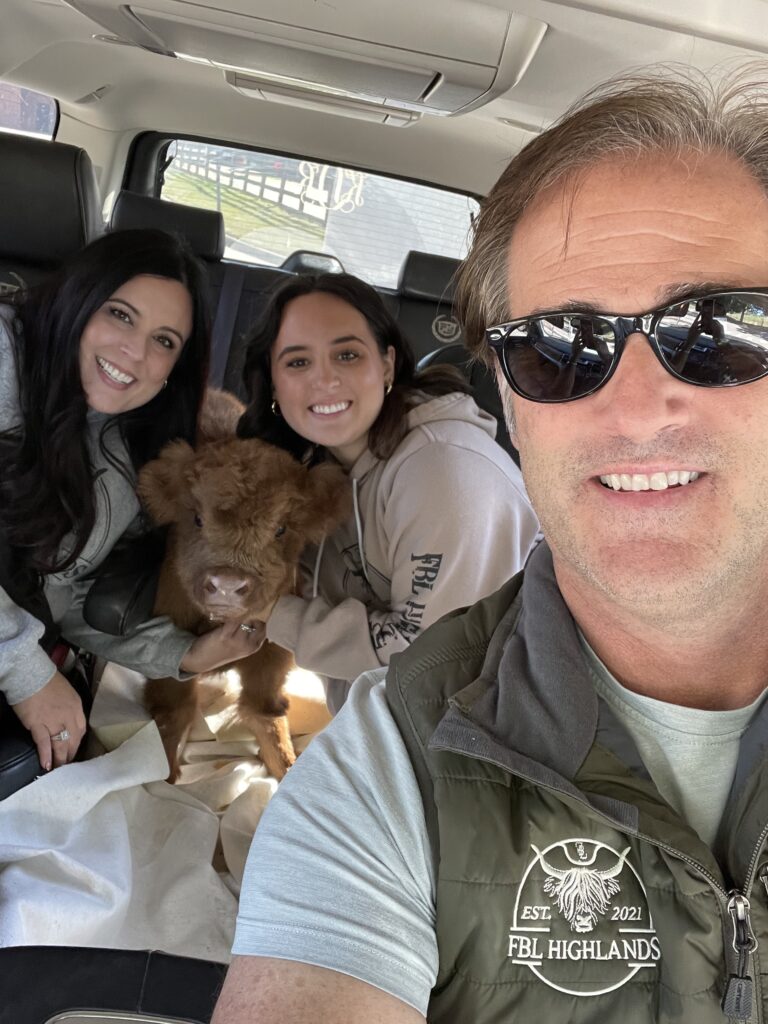
Starlight was discharged with Luna on Oct. 18 after tests showed she cleared the infections. Veterinarians advised the Dawkinses to be proactive about Luna’s preventative care going forward, because her compromised immune system will make her more susceptible to illness.
Determined to make up for lost time, Luna immediately sprang into curious calf mode at home.
“The minute she got out of the car, we let her in that little pasture, and she just started running around and looking at everything,” says JulieAnne Dawkins. “She was walking up to trees like, ‘Oh, what is this?’ And she would look at the dirt and try to eat it.”
Today, Luna trots around the pasture in a plush pink coat to keep her warm and healthy, but she isn’t afraid to push the bigger calves out of her way at the protein tub.
Frolicking works up quite the appetite, and a growing girl needs her lunch.
